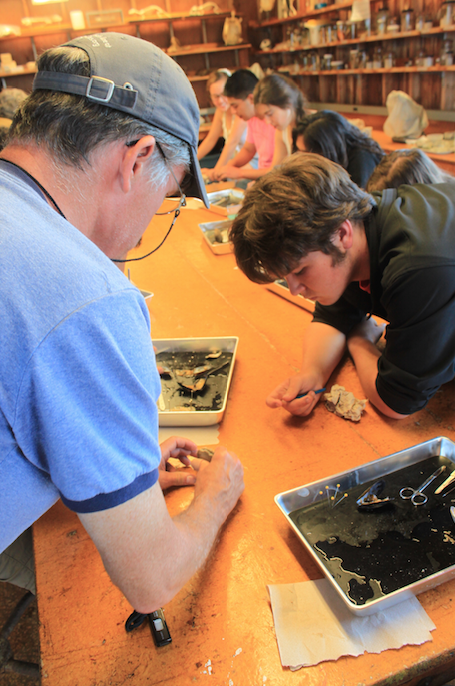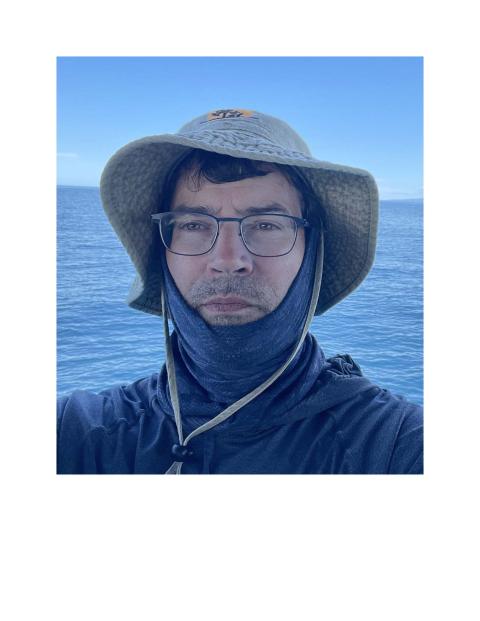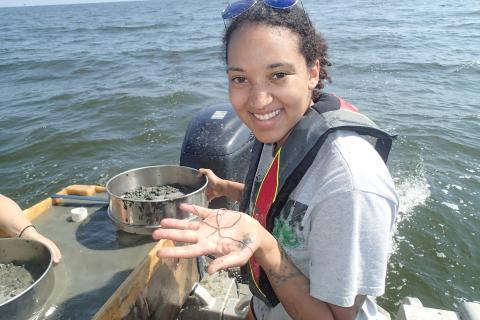Course Dates
June 30, 2025 to July 14, 2025
Prerequisites
None
Equivalent Note
Cornell students: this course is equivalent to BioG 1500.
Cornell students, this course fulfills the following requirements (equivalent to BioG 1500):
- Core Course requirement for Biological Sciences majors
- Introductory Biology Lab experience for Biology & Society majors
- Major course requirement for Biological Engineering majors
- CALS graduation requirement under Physical & Life Sciences courses
- College of Arts & Sciences distribution requirement under Physical & Biological Sciences (PBS) courses
Course Description

This course is a field and lab intensive marine-based introduction to the scientific method and experimental biology. The course takes advantage of the unique learning opportunities in the intertidal zone on Appledore Island. Students work closely with instructors to design and conduct independent research projects that explore how marine organisms are adapted to the physical and biotic factors in their environment.
Learning outcomes include:
- Understand and apply principles of good experimental design and data collection;
- Become proficient with environmental probes and biological imaging tools;
- Demonstrate an understanding of the structure of scientific papers and their relationship to the scientific method;
- Learn how to carry out statistical testing, analysis and graphing using R software.
Special note: Students can combine this course with SML's Research in Biology course as part in the Shoals Research Apprenticeship program. Investigative Marine Biology Laboratory is a required prerequisite for Research in Biology. Students in the apprenticeship program will carry out their own individual research project with guidance and resources from SML.
Status:
Course Numbers
Cornell: BIOSM 1500 (3 Credits)
UNH: MEFB 403 (4 Credits)
Faculty
Dr. Douglas Fudge

Professor, Chapman University
Dr. Fudge runs the Comparative Biomaterials Lab at Chapman University. As an undergraduate, he studied biology at Cornell University, followed by an M.A.T. in science education, also at Cornell. For his M.Sc. research, he worked on the biology of bluefin tuna at the University of Guelph, and then moved to the University of British Columbia for his Ph.D., where he worked on the biomechanics of hagfish slime in John Gosline’s lab. As an NSERC postdoctoral fellow, he worked on cell biomechanics in Wayne Vogl’s lab in the Faculty of Medicine at the University of British Columbia. He joined the faculty in the Department of Integrative Biology at the University of Guelph in 2005, where he worked until 2016.
Dr. Kara Gadeken

Dr. Kara Gadeken (NSF Postdoctoral Fellow) – Kara's interests lie at the intersection of ecology and biogeochemistry in marine sediments. For her Ph.D. she studied how animals living in sediments change their behaviors throughout a diel oxygen cycle, and the effects these behavioral shifts have on sediment metabolism. Her postdoctoral work focuses on describing how seagrass roots and rhizomes affect the sediment around them, create a unique habitat for sediment-dwelling organisms, and affect the ability of seagrass beds to sequester carbon.
Kara is originally from Northern Virginia and received a B.S. in Biology with a minor in Marine Science from the College of William and Mary in 2014. In 2022 she completed her doctoral work at the University of South Alabama and the Dauphin Island Sea Lab. When not marine science-ing Kara enjoys other water-related activities like swimming and scuba diving, touring museums, galleries and historic sites, and being a nerd with her D&D group.
